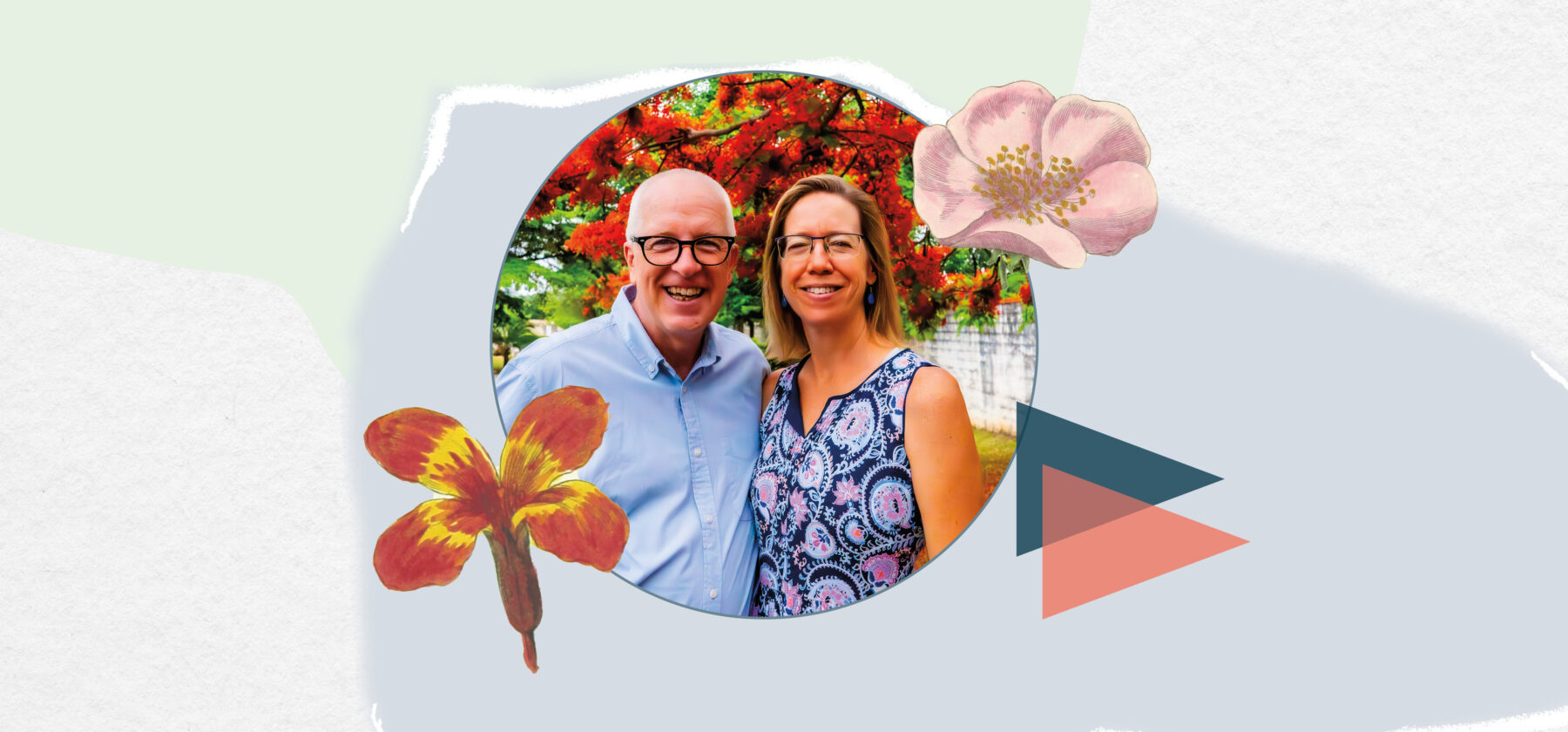The Power of “Yes”
A version of this article about Eric and Holly (Holbrook) Nelson ’89 originally appeared in the spring 2024 issue of STILLPOINT magazine.
“Yes, we’ll take him,” Holly Nelson remembers overhearing her husband, Eric, telling the person on the other end of an unexpected phone call.
“There’s a little boy in Brazil with Down syndrome,” Eric explained to Holly after hanging up. “And he’s dying because the orphanage is not feeding him. They’re letting him die because they don’t want him.”
The Nelsons had already adopted 14-month-old twin daughters, abandoned at a hospital in Brazil, with Down syndrome and severe heart defects. Another adoption was not in their plans. But the judge in Sao Paolo who had processed Mollie and Maggie’s adoption remembered the Nelsons and called to ask if they’d consider taking the little boy.
When 13-month-old Sam arrived in Boston later that week, weighing only 10.2 lbs, “I had never seen any human being in the state that this kid was in,” Holly remembers: wiry hair, concave cheeks, protruding bones.
“The doctors thought he had a week to live; we got him just in the nick of time.”
Sam had life-saving heart surgery one week later, and Holly and Eric had a life-altering realization: “This was the first time we ever considered that there would be a place in the world that would not care for kids with intellectual disabilities, just because they have a disability.”
A CONVICTION TO SERVE
Sam’s orphanage wasn’t alone in its neglect. Throughout many developing countries, the Nelsons explain, a lack of understanding about and support for individuals with disabilities drives caregivers to follow a similar course: hiding, abandoning, starving, even poisoning children.
In retrospect Holly and Eric remember the day they got Sam as the day Special Hope Network began. It would be another decade—full of caring for and homeschooling their children, Holly resuming work as a special education teacher and Eric pastoring churches—before the organization materialized.
The Nelsons’ conviction to serve individuals with intellectual disabilities began long before the adoption of their three children. Nearly 40 years ago, when a poorly attended psychology study group session accidentally became a first date, Eric and Holly discovered a shared passion. They had both spent summers working with children with intellectual disabilities, worked in respite care for adults with disabilities and took overnight shifts at group homes for adults with disabilities. Their shared passion became their parenthood journey and eventually a career calling.
“I was on a business trip in Texas in 2008”, Eric remembers, “and it just came to me: a perfectly clear, complete thought that we were living on the wrong continent.” The Nelsons wanted to go where the need was greatest, but finding a supporting organization dedicated to serving individuals with intellectual disabilities in these places was a challenge. They incorporated Special Hope Network in 2008, and in 2010 they moved their family to Lukasa, Zambia.
TRADING STIGMA FOR SUPPORT
In a region already plagued by staggeringly high child mortality and disability rates, “a child with intellectual disabilities is considered to be cursed, contagious or a product of witchcraft,” explains Eric. “So children are likely hidden away in their homes. Parents, particularly the mothers, feel a lot of shame because they’re blamed for having this child with intellectual disabilities.”
Special Hope Network is working to change the narrative around and outcomes for children with disabilities in Lusaka—to say “yes” to more kids like Sam, Maggie and Mollie, rather than leaving them in the margins. Special Hope Network works with parents to foster safe home environments; provides medical care; partners with schools, orphanages and churches; and trains staff at other nonprofits, like World Vision and Catholic Relief Services, which work in the area and regularly interact with individuals with disabilities.
Much of this work happens through seven Community Care Centers operated in compounds located in high density, high poverty areas. There, more than 50 Special Hope Network Zambian staff and four volunteer U.S. missionaries provide medical guidance, family counseling, motor training, communication support, feeding instructions and educational lessons.
Having a dedicated place where children with disabilities are seen and supported lowers the stigma and isolation that many caregivers feel. Parents see others who look like them, and they see their child being valued and included. “Instead of being the one parent with the kid that doesn’t do something, doesn’t sit up, doesn’t talk, doesn’t walk or won’t get a job, they’re in this together,” Holly explains. “The community part of our Community Care Center is really important.”
Community helps more parents say “yes” to embracing disability. “Parents get to see their children not as a mistake,” says Eric, “but as purposefully designed by God to show his glory in a unique way.”
To learn more about the work of Eric and Holly, visit Special Hope Network.
 The Bell
The Bell